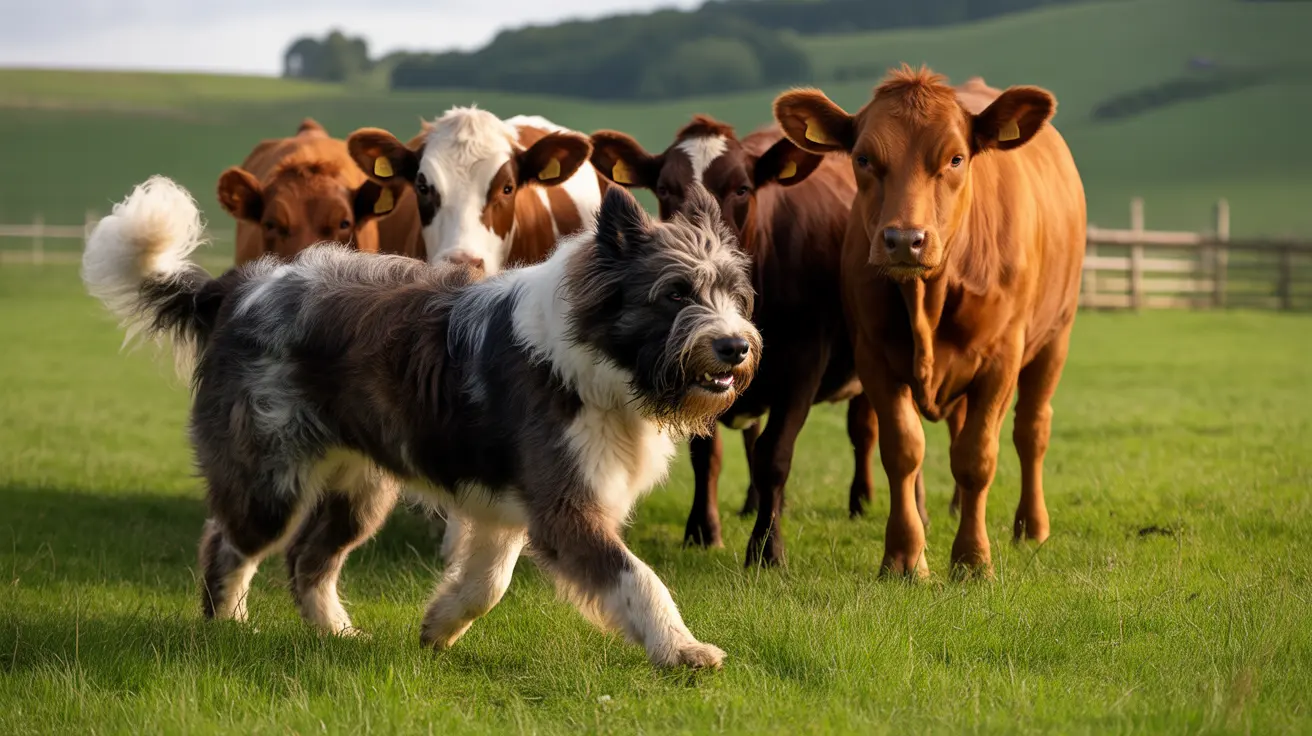The Bouvier, formally known as the Bouvier des Flandres, stands as one of Europe's most distinguished herding breeds. Originally developed in the Flanders region spanning Belgium and France, this powerful and intelligent dog has evolved from its humble farming roots to become a versatile companion, guardian, and working dog.
With their distinctive bearded appearance and robust build, these remarkable dogs combine strength with grace, making them equally suited for both work and family life. Let's explore everything you need to know about this fascinating breed, from their rich history to their modern-day care requirements.
The Bouvier Dog: Origins and Heritage
The Bouvier dog emerged from the agricultural landscapes of medieval Flanders, where they earned their reputation as invaluable farm workers. Their name, which translates to "cowherd of Flanders," reflects their original purpose of herding cattle, pulling carts, and protecting farm properties.
Despite nearly facing extinction during World War I, the breed was saved through dedicated preservation efforts. The Belgian army played a crucial role in this revival, recognizing the Bouvier's potential as a military and police dog. This versatility would later extend to roles in search and rescue, guide dog work, and competitive dog sports.
Physical Characteristics
The Bouvier presents an imposing yet elegant figure, with males standing 24-27 inches tall and weighing between 80-120 pounds. Their most distinctive feature is their weatherproof double coat, complete with a characteristic beard, mustache, and eyebrows that give them their unique expression.
The breed's coat comes in various colors, including black, fawn, gray, and brindle, often with subtle variations. Despite their rugged appearance, Bouviers move with surprising agility and grace, reflecting their working heritage.
Temperament and Personality Traits
Known for their steady and calm demeanor, Bouviers exhibit remarkable intelligence combined with a strong protective instinct. They form deep bonds with their families while maintaining a naturally reserved attitude toward strangers - a trait that makes them excellent watchdogs.
These dogs thrive on having a purpose and excel in environments where they can put their working intelligence to use. Their rational nature makes them excellent problem-solvers, though this same trait requires owners to provide consistent, engaging training methods.
Training and Exercise Requirements
Bouviers require substantial physical and mental exercise to maintain their well-being. Their high energy levels and working dog heritage demand regular, purposeful activity beyond simple walks. Engaging them in dog sports, advanced training, or giving them specific tasks can help satisfy their natural drive to work.
Early socialization is crucial for developing a well-adjusted adult dog. Their intelligence makes them quick learners, but their independent nature means they need firm, consistent guidance from experienced handlers.
Frequently Asked Questions
How often should I groom my Bouvier des Flandres to prevent matting?
Brush your Bouvier at least weekly, with professional grooming every 6-8 weeks. Daily brushing may be necessary during seasonal coat changes. Pay special attention to their beard and leg furnishings, which are prone to tangling.
What kind of exercise is best for a Bouvier des Flandres to keep them physically and mentally stimulated?
Combine daily physical exercise (1-2 hours) with mental challenges. Activities should include long walks, herding exercises, agility training, or advanced obedience work. Interactive puzzle toys and training sessions help provide mental stimulation.
How do I train a Bouvier des Flandres puppy to be well-behaved around children and other pets?
Start socialization early, exposing your puppy to various people, children, and animals in positive situations. Use positive reinforcement training methods and supervise all interactions. Establish clear boundaries and consistently reward calm, appropriate behavior.
What are some common health issues in Bouviers des Flandres, and how can I prevent them?
Common issues include hip dysplasia, bloat, and eye problems. Prevention includes maintaining healthy weight, feeding appropriate portions, regular exercise, and scheduled veterinary check-ups. Consider genetic testing and work with reputable breeders.
Are Bouviers des Flandres suitable for first-time dog owners, and what kind of experience is recommended?
Bouviers are generally not recommended for first-time owners due to their size, strength, and training needs. Ideal owners should have experience with large working breeds and understand positive training methods. Prior experience with herding or guardian breeds is particularly beneficial.
Conclusion
The Bouvier represents an exceptional blend of strength, intelligence, and loyalty. While they require dedicated care and experienced handling, these remarkable dogs offer unparalleled companionship and versatility for the right owners. Whether as a family guardian, working partner, or competitive sport dog, the Bouvier continues to prove its worth as one of the most capable and adaptable breeds in the canine world.






